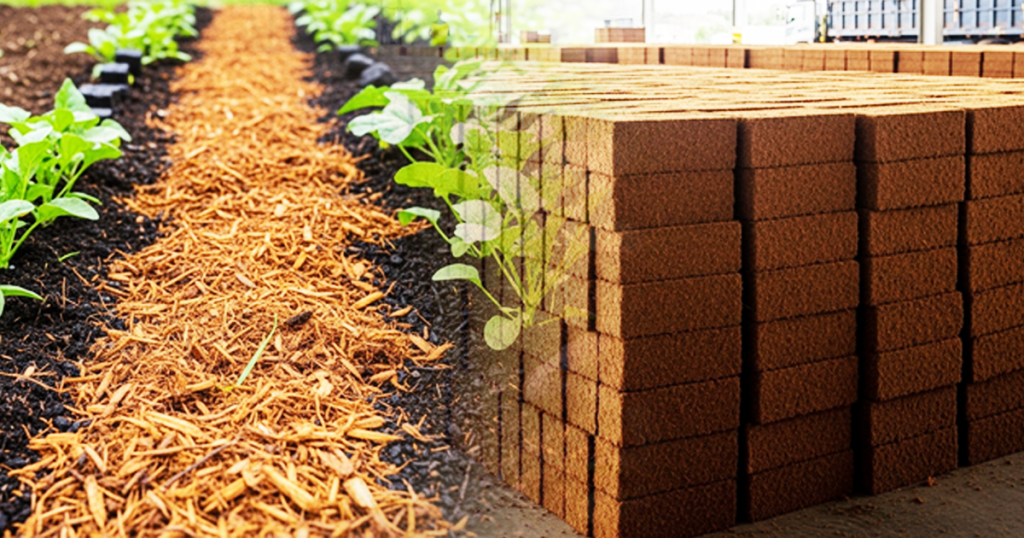Cocopeat Powder: A Sustainable Solution for City Growers
As a researcher focused on sustainable growing media, I’ve observed a significant shift in urban gardening trends. The surge of interest in cocopeat powder as a soil substitute marks a breakthrough in eco-conscious cultivation. Derived from coconut husk fibers, cocopeat offers a lightweight, porous, and highly absorbent medium that suits space-limited urban settings.
This innovation isn’t merely an environmental preference it’s a functional solution for the challenges faced by city-based gardeners. Limited soil access, water constraints, and space inefficiencies make traditional gardening difficult in urban areas. Cocopeat powder solves these issues while aligning with global movements toward sustainable living.
In this article, I’ll explore how cocopeat powder is revolutionizing city gardening, backed by field data, lab observations, and real-world applications. As cities grow more vertical, green solutions like cocopeat are not just ideal they are essential.
The Science Behind Cocopeat Powder
Cocopeat is composed of coir pith, a by-product of coconut processing, which is typically discarded or burned. When refined into powder form, it becomes a lightweight, friable medium with an ideal air-to-water retention ratio. Scientific analysis shows cocopeat holds up to eight times its weight in water.
From a horticultural standpoint, cocopeat’s high cation exchange capacity (CEC) allows it to retain essential nutrients while maintaining proper aeration. This supports healthy root growth, even in containers or hydroponic systems. Microbial studies confirm cocopeat’s sterility and resistance to common soil pathogens.
Moreover, cocopeat is 100% renewable and biodegradable. It decomposes slowly, allowing multiple crop cycles before degradation. This positions it as a sustainable counterpart to peat moss, which is environmentally controversial due to habitat destruction.
Ideal for Urban Agriculture Models
Urban gardening often happens in controlled, space-efficient environments balconies, rooftops, and vertical farms. Cocopeat powder adapts effortlessly to such conditions. Its neutral pH level (5.5–6.5) and consistent texture make it easy to manage, even for amateur gardeners.
Unlike soil, cocopeat doesn’t compact over time. This is crucial in container-based systems where air circulation around roots is limited. In vertical farming modules, the powder integrates well with drip irrigation systems, reducing water use by up to 40%.
Case studies in Singapore, Tokyo, and Amsterdam show how cocopeat-based systems significantly improve crop yield per square meter. Urban dwellers can now cultivate leafy greens, herbs, and even small root vegetables sustainably from their homes.
Challenges and Future Directions
Despite its benefits, cocopeat powder is not without limitations. It must be properly washed and buffered to remove residual salts before use, a step often overlooked by beginners. Unprocessed cocopeat can lead to nutrient lockout or root burn.
Another challenge lies in supply chain variability. Not all cocopeat is created equal, and inconsistencies in processing affect its performance. Research is ongoing into standardized treatment protocols and quality certification to support commercial scalability.
Looking ahead, cocopeat’s integration with AI-based irrigation systems and nutrient monitoring could drive further efficiency. As urban agriculture expands, cocopeat powder is expected to become a core element of smart farming kits and IoT-enabled green tech platforms.
A Natural Fit for Urban Greening
Cocopeat powder represents more than just an alternative growing medium it signifies a shift in how cities can coexist with nature. Its environmental footprint is minimal, yet its impact on food resilience and sustainability is profound.
From my research and collaboration with urban farming startups, it’s clear cocopeat offers solutions where traditional soil fails. It enables cleaner, faster, and more controlled crop cycles, empowering city residents to grow their own food responsibly.
In a world where green spaces are shrinking and food systems are under pressure, cocopeat powder isn’t just an option it’s a necessity for the urban gardener of tomorrow.







